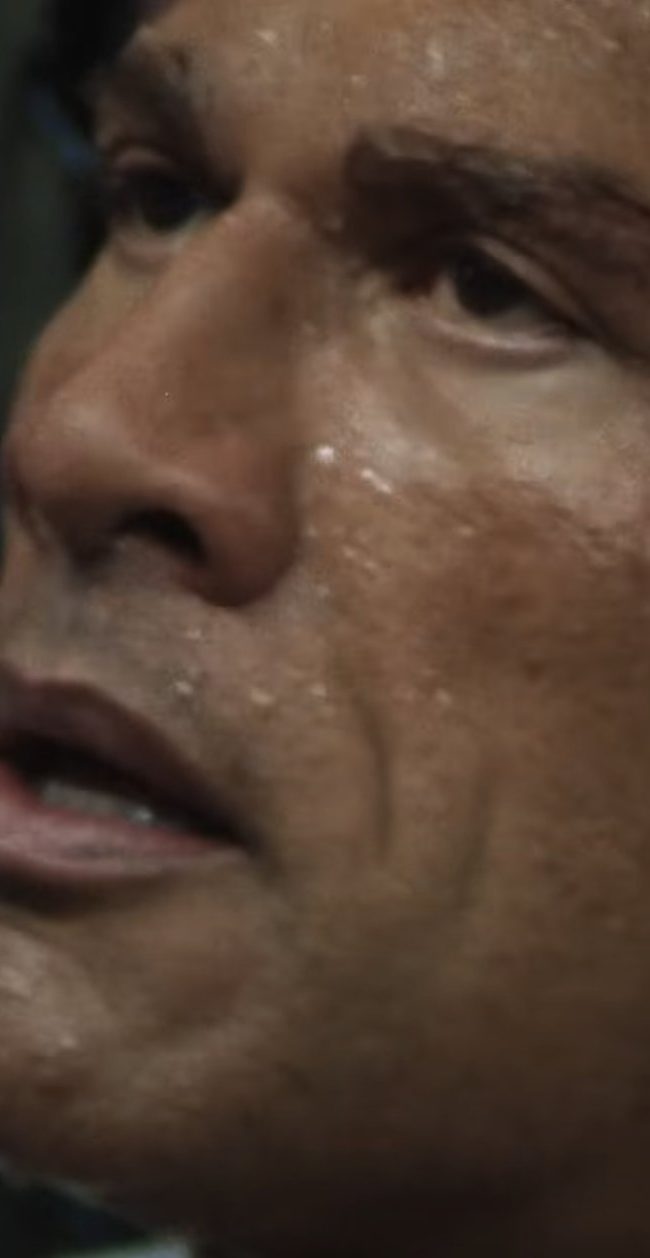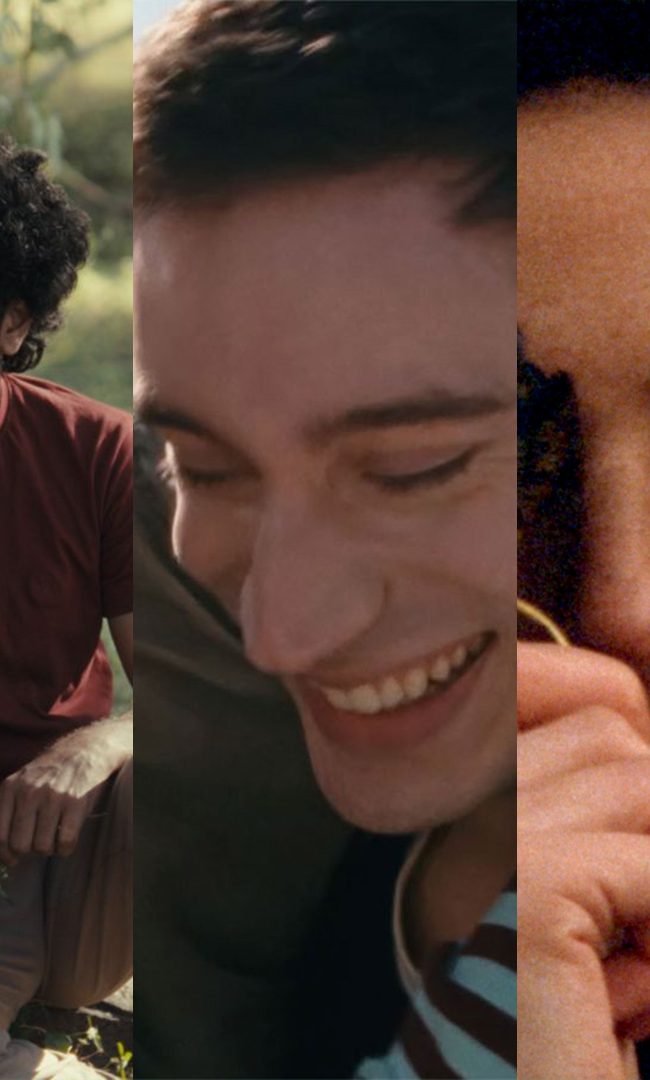NEW DIRECTORS/NEW FILMS 2013 — HTN PICKS!
Another edition of New Directors/New Films has arrived, you lucky New York Cityers, which means the time has come once again to lace up your comfiest walking shoes and jet back-and-forth between MoMA and the Film Society of Lincoln Center in order to catch as many of this year’s entries as possible. Before we begin, we’d like to clarify that we here at HTN have not been able to screen the full ND/NF slate, so the exclusion of a title doesn’t necessarily mean that we didn’t/wouldn’t dig it. That said, each writer stands behind whatever film he or she has capsulized below, so if you only plan to see a few entries, hopefully this will help give you some guidance. [NOTE: THIS POST WILL BE UPDATED THROUGHOUT THE FEST!]
OPENING NIGHT: Wednesday, March 20th
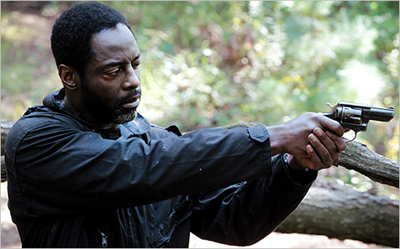 Blue Caprice (USA, Alexandre Moors, 92m) — Blue Caprice is a film that gets us up close and personal with the infamous DC snipers, not through graphic ‘you are there’ violence but by staying close to the characters’ emotional void. What is amazing is that we get such suspense from the bizarre relationship between the older man (played with quiet intensity by Isaiah Washington) and his young adopted ‘son’ (Tequan Richmond) that we don’t really notice the typical crime/police procedural tendencies have been utterly subverted by lyrical pacing and languid long-take wide shots. At times, Moors’ approach reminded me of Henry: Portrait of a Serial Killer—without the graphic violence—because it brings us so closely inside the killers’ mundane world that the violent acts become somewhat logical due to our deep immersion into their warped perceptions. Blue Caprice is filmmaking of the highest quality made by a filmmaker who respects the audience enough to not rely on stock suspense techniques and is free enough to let the tale unravel apart from a concern over our standard expectations about how such crime tales are typically told. (Mike S. Ryan)
Blue Caprice (USA, Alexandre Moors, 92m) — Blue Caprice is a film that gets us up close and personal with the infamous DC snipers, not through graphic ‘you are there’ violence but by staying close to the characters’ emotional void. What is amazing is that we get such suspense from the bizarre relationship between the older man (played with quiet intensity by Isaiah Washington) and his young adopted ‘son’ (Tequan Richmond) that we don’t really notice the typical crime/police procedural tendencies have been utterly subverted by lyrical pacing and languid long-take wide shots. At times, Moors’ approach reminded me of Henry: Portrait of a Serial Killer—without the graphic violence—because it brings us so closely inside the killers’ mundane world that the violent acts become somewhat logical due to our deep immersion into their warped perceptions. Blue Caprice is filmmaking of the highest quality made by a filmmaker who respects the audience enough to not rely on stock suspense techniques and is free enough to let the tale unravel apart from a concern over our standard expectations about how such crime tales are typically told. (Mike S. Ryan)
Thursday, March 21st
 Tower (Canada, Kazik Radwanski, 78m) — Maybe it’s the dark side of the “30 is the new 20” mentality, or maybe it’s a symptom of economic stagnation, but in recent years we’ve seen a steady stream of stories about men who refuse to grow up. In the Hollywood version (Judd Apatow’s early comedies, most Adam Sandler vehicles), the man-boy inevitably Learns to Love with the Help of a Good Woman. His indie/art-house counterpart (Noah Baumbach’s Greenberg, Todd Solondz’s Dark Horse, Ronald Bronstein’s great Frownland) usually has a grimmer time of it. Kazik Radwanski’s debut feature is a strong addition to the latter grouping. Derek (Derek Bogart), 34, lives in Toronto with his parents, works construction jobs, tries to meet women in clubs and online, and frets over his pet project, a computer-animated short film. Radwanski has a sharp ear for the defense mechanisms of the lonely, the unloved, and the lost (i.e., all of us at one time or another). The handheld camera stays in tight close-up throughout the film, a potentially tiresome device that here succeeds beautifully in granting us an intimacy with Derek that he refuses to everyone around him. (Nelson Kim)
Tower (Canada, Kazik Radwanski, 78m) — Maybe it’s the dark side of the “30 is the new 20” mentality, or maybe it’s a symptom of economic stagnation, but in recent years we’ve seen a steady stream of stories about men who refuse to grow up. In the Hollywood version (Judd Apatow’s early comedies, most Adam Sandler vehicles), the man-boy inevitably Learns to Love with the Help of a Good Woman. His indie/art-house counterpart (Noah Baumbach’s Greenberg, Todd Solondz’s Dark Horse, Ronald Bronstein’s great Frownland) usually has a grimmer time of it. Kazik Radwanski’s debut feature is a strong addition to the latter grouping. Derek (Derek Bogart), 34, lives in Toronto with his parents, works construction jobs, tries to meet women in clubs and online, and frets over his pet project, a computer-animated short film. Radwanski has a sharp ear for the defense mechanisms of the lonely, the unloved, and the lost (i.e., all of us at one time or another). The handheld camera stays in tight close-up throughout the film, a potentially tiresome device that here succeeds beautifully in granting us an intimacy with Derek that he refuses to everyone around him. (Nelson Kim)
Friday, March 22nd
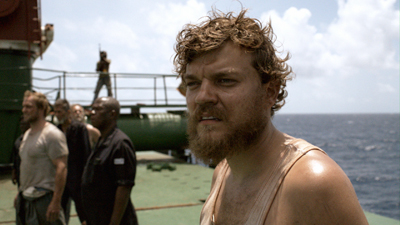 A Hijacking (Denmark, Tobias Lindholm, 99m) — A Danish cargo ship sailing the Indian Ocean is hijacked by a band of Somali pirates. As the hostage situation stretches out over several weeks, then months, the film shifts back and forth between two protagonists—the ship’s cook (Pilou Asbæk), struggling to stay alive and sane hundreds of miles from home, and the shipping company’s CEO (Søren Malling), negotiating with the pirates from his gleaming corporate office tower in Copenhagen, knowing that if he fails or fumbles his employees may be killed. Partly inspired by real events, A Hijacking is a smart, tense thriller that delivers genuine suspense without resorting to clichés of behavior, situation, or structure. Lindholm’s choice to maintain a narrow focus on only two characters seemed oddly restricting at first, but ultimately it serves to heighten the dramatic tension—although I wish Lindholm had dared to include the perspective of one of the Somali pirates. Alas, the mainstream cinema of Europe, like that of America, probably isn’t ready for such a film. (NK)
A Hijacking (Denmark, Tobias Lindholm, 99m) — A Danish cargo ship sailing the Indian Ocean is hijacked by a band of Somali pirates. As the hostage situation stretches out over several weeks, then months, the film shifts back and forth between two protagonists—the ship’s cook (Pilou Asbæk), struggling to stay alive and sane hundreds of miles from home, and the shipping company’s CEO (Søren Malling), negotiating with the pirates from his gleaming corporate office tower in Copenhagen, knowing that if he fails or fumbles his employees may be killed. Partly inspired by real events, A Hijacking is a smart, tense thriller that delivers genuine suspense without resorting to clichés of behavior, situation, or structure. Lindholm’s choice to maintain a narrow focus on only two characters seemed oddly restricting at first, but ultimately it serves to heighten the dramatic tension—although I wish Lindholm had dared to include the perspective of one of the Somali pirates. Alas, the mainstream cinema of Europe, like that of America, probably isn’t ready for such a film. (NK)
Tower (see above)
Saturday, March 23rd
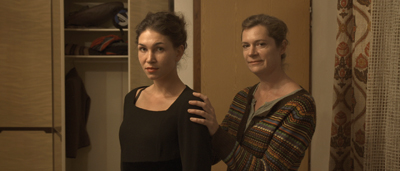 Soldate Jeannette (Austria, Daniel Hoesl, 79m) — You’ve got to appreciate and respect a film that chooses its stylistic parameters and then sticks to it as if it were a moral commitment of the highest order. Soldate Jeannette fully embraces the long-take fixed-frame style of Chantal Akerman, circa Jeanne Dielman and I… You… He… She…. Radically rejecting the reverse/angle/master-shot grammar of standard Hollywood, Soldate Jeannette conveys both pictorial beauty, evocative compositions and narrative information, often through no more than three angles per scene. Fanni (played by Johanna Orsin-Rosenberg) is like Jeanne Dielman as if she read Marx and then just walked out of the apartment instead of killing her last customer. Fanni somehow has access to cash and credit cards but goes through great lengths to eschew all connections to the money driven values of swank Vienna. More of a bold energetic formal excursion than an actual act of political call to action, the film is way too in love with its own aesthetics to be truly worthy of agitprop. But it’s an enjoyable cinematic journey, made tense and suspenseful due to its formal rigor. Only made for 65,000 Euros, its high end locations and amazing photography prove once again that in the hands of smart producers and directors, one can get the highest screen values regardless of budget size. (MSR)
Soldate Jeannette (Austria, Daniel Hoesl, 79m) — You’ve got to appreciate and respect a film that chooses its stylistic parameters and then sticks to it as if it were a moral commitment of the highest order. Soldate Jeannette fully embraces the long-take fixed-frame style of Chantal Akerman, circa Jeanne Dielman and I… You… He… She…. Radically rejecting the reverse/angle/master-shot grammar of standard Hollywood, Soldate Jeannette conveys both pictorial beauty, evocative compositions and narrative information, often through no more than three angles per scene. Fanni (played by Johanna Orsin-Rosenberg) is like Jeanne Dielman as if she read Marx and then just walked out of the apartment instead of killing her last customer. Fanni somehow has access to cash and credit cards but goes through great lengths to eschew all connections to the money driven values of swank Vienna. More of a bold energetic formal excursion than an actual act of political call to action, the film is way too in love with its own aesthetics to be truly worthy of agitprop. But it’s an enjoyable cinematic journey, made tense and suspenseful due to its formal rigor. Only made for 65,000 Euros, its high end locations and amazing photography prove once again that in the hands of smart producers and directors, one can get the highest screen values regardless of budget size. (MSR)
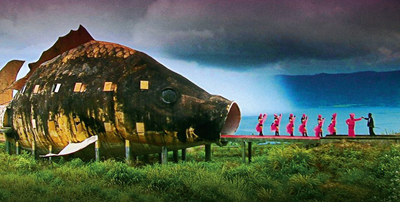 The Act of Killing (Denmark, Joshua Oppenheimer, 116m) — In the late 1960s there was a killing purge of all suspected ‘communists.’ In Indonesia, the purge was successful; hundreds of thousands were killed. Today, the self-described gangsters are still in power and the killers are treated as rock stars. Joshua Oppenheimer was living in Indonesia when he met one of the most infamous killers and was shocked to see how eager he was to boast of his killing. Oppenheimer picked up a camera and filmed as he gathered many of the most notorious murderers and they donned costumes and created film scenes in which they reenacted the horrors, sometimes on relatives of actual victims. An essential aspect of The Act of Killing is the role that fiction plays in our own lives and our own ability to grapple with our actions. Oppenheimer’s film is absolutely haunting and though watching it is somewhat traumatic, it is an essential film not only as a document of this Holocaust, but because it throws back into our face how power is able to falsely manipulate truth and history. The Act of Killing is as important as Shoah because it expands our understanding of our own capacity for evil and society’s ability to process and digest the complicity connected to such actions. (MSR)
The Act of Killing (Denmark, Joshua Oppenheimer, 116m) — In the late 1960s there was a killing purge of all suspected ‘communists.’ In Indonesia, the purge was successful; hundreds of thousands were killed. Today, the self-described gangsters are still in power and the killers are treated as rock stars. Joshua Oppenheimer was living in Indonesia when he met one of the most infamous killers and was shocked to see how eager he was to boast of his killing. Oppenheimer picked up a camera and filmed as he gathered many of the most notorious murderers and they donned costumes and created film scenes in which they reenacted the horrors, sometimes on relatives of actual victims. An essential aspect of The Act of Killing is the role that fiction plays in our own lives and our own ability to grapple with our actions. Oppenheimer’s film is absolutely haunting and though watching it is somewhat traumatic, it is an essential film not only as a document of this Holocaust, but because it throws back into our face how power is able to falsely manipulate truth and history. The Act of Killing is as important as Shoah because it expands our understanding of our own capacity for evil and society’s ability to process and digest the complicity connected to such actions. (MSR)
Sunday, March 24th
The Act of Killing (***This day’s screening features the 158m director’s cut***)
A Hijacking (see above)
Monday, March 25th
Soldate Jeannette (see above)
Thursday, March 28th
 Upstream Color (USA, Shane Carruth, 96m) — Shane Carruth’s 2004 debut Primer, a fiendishly intelligent exploration of the intricacies and paradoxes of time travel, was one of the great puzzle films—but bewildering as the movie could seem on first viewing, it was a puzzle that invited the viewer to solve it. Upstream Color, his much-anticipated follow-up, seeks to bypass rational explanation and narrative causality almost entirely in favor of a more abstract, intuitive approach. It’s not that the movie skimps on plot, just that the plot doesn’t add up in any conventional fashion. A young woman (Amy Seimetz) is kidnapped, and infected with a parasite that robs her of her memory. Once re-released into the world, she takes up with a businessman (Carruth) whose own past is filled with mysterious lacunae. Both of them seem to be victims of a conspiracy involving the creation of new lifeforms, and experiments in altering human consciousness… and that’s about all I can state for certain. But slippery as the story is, Upstream Color hits home with piercing evocations of love and loss, and passages of breathtaking cinematic lyricism in which action and emotion register as fleeting impressions, snatches of half-heard dialogue, flashes of image and sensation. At the very least, this is as formally inventive and stylistically dazzling a film as you’re likely to see all year. (NK)
Upstream Color (USA, Shane Carruth, 96m) — Shane Carruth’s 2004 debut Primer, a fiendishly intelligent exploration of the intricacies and paradoxes of time travel, was one of the great puzzle films—but bewildering as the movie could seem on first viewing, it was a puzzle that invited the viewer to solve it. Upstream Color, his much-anticipated follow-up, seeks to bypass rational explanation and narrative causality almost entirely in favor of a more abstract, intuitive approach. It’s not that the movie skimps on plot, just that the plot doesn’t add up in any conventional fashion. A young woman (Amy Seimetz) is kidnapped, and infected with a parasite that robs her of her memory. Once re-released into the world, she takes up with a businessman (Carruth) whose own past is filled with mysterious lacunae. Both of them seem to be victims of a conspiracy involving the creation of new lifeforms, and experiments in altering human consciousness… and that’s about all I can state for certain. But slippery as the story is, Upstream Color hits home with piercing evocations of love and loss, and passages of breathtaking cinematic lyricism in which action and emotion register as fleeting impressions, snatches of half-heard dialogue, flashes of image and sensation. At the very least, this is as formally inventive and stylistically dazzling a film as you’re likely to see all year. (NK)
Friday, March 29th
Stories We Tell (Canada, Sarah Polley, 108m) — Sarah Polley’s new film Stories We Tell is an examination of her own family’s secrets, triumphs and tragedies, which takes the complex relationship between real life and its irretrievable immediacy as its subject, using the narrative structure of an investigation as a form of preordained revelation; conceived after each of the film’s participants already knew the central secret of Polley’s story (a secret I will not reveal here because, frankly, why spoil it? It is not the story that matters in this instance as much as the telling…), the film uses a blend of fictional recreation, interviews, archival home footage and voice over narration to explore the idea of how a family collectively preserves its own memory of itself. The enigmatic heart of the film is Polley’s own mother, Diane, a flamboyant actress whose energy and zeal for living made a profound impact on her family and friends. It is not too much to reveal that Diane Polley passed away from cancer at a relatively young age, leaving a void in the lives of those who knew and loved her. The film fills that absence with the memories of those who remain, with the complex balance of ascribing feeling and authority to Diane’s experience through the filter of their own lives, judgments and perceptions, each unique and each only revealing facets of a complicated, ultimately unknowable life. Read the full HTN review. (Tom Hall)
Saturday, March 30th
Upstream Color (see above)
Stories We Tell (see above)
Sunday, March 31st
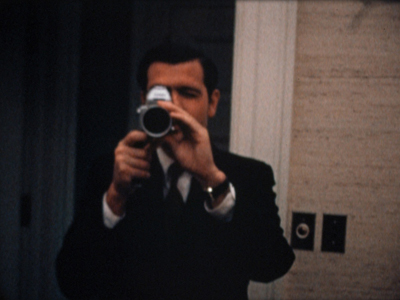 Our Nixon (Penny Lane, 85m) — The inspiration for this all-archival documentary was director Penny Lane and producer Bryan L. Frye’s discovery that the National Archives housed a cache of super 8 home movies shot during the Nixon administration by aides H.R. Haldeman, John Ehrlichman, and Dwight Chapin. The film deftly layers footage from these home movies (from lustrous 4K scans of the originals) with news clips, interviews, and of course audio from the infamous White House Tapes recorded during Nixon’s presidency. Lane moves linearly through Nixon’s time in office, covering highs (the moon landing, his trip to China), and lows (the Pentagon Papers, Watergate). Though the editing is precise and the information potent, Our Nixon uses these primary sources in surprising ways, less as facts supporting a thesis than as revelations of core ambiguities in what might be called the American character. Like history itself, the resulting film is elusive, a political science fever dream and a visually arresting meditation on the nature and delusions of power. (Susanna Locascio)
Our Nixon (Penny Lane, 85m) — The inspiration for this all-archival documentary was director Penny Lane and producer Bryan L. Frye’s discovery that the National Archives housed a cache of super 8 home movies shot during the Nixon administration by aides H.R. Haldeman, John Ehrlichman, and Dwight Chapin. The film deftly layers footage from these home movies (from lustrous 4K scans of the originals) with news clips, interviews, and of course audio from the infamous White House Tapes recorded during Nixon’s presidency. Lane moves linearly through Nixon’s time in office, covering highs (the moon landing, his trip to China), and lows (the Pentagon Papers, Watergate). Though the editing is precise and the information potent, Our Nixon uses these primary sources in surprising ways, less as facts supporting a thesis than as revelations of core ambiguities in what might be called the American character. Like history itself, the resulting film is elusive, a political science fever dream and a visually arresting meditation on the nature and delusions of power. (Susanna Locascio)








